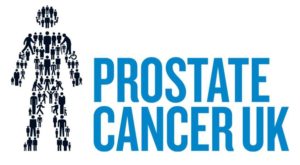According to the (NHS) prostate cancer is the most common cancer in men in the UK. As it develops slowly there may be no obvious signs that you have it for many years. In the UK, ab out 1 in 8 men will get prostate cancer in their lifetime.
out 1 in 8 men will get prostate cancer in their lifetime.
The prostate is a gland. It is usually the size and shape of a walnut and grows bigger as you get older. It sits underneath the bladder and surrounds the urethra, which is the tube that carries urine out of the body.
As it surrounds the urethra, often symptoms connected to urinating can be an indication that something might be wrong, such as:
- An increased need to urinate.
- Straining whilst urinating.
- A feeling that your bladder has not fully emptied.
IMPORTANT NOTE: If you have any of these symptoms, they do not mean you have prostate cancer, but they should not be ignored or allowed to continue unchecked, seek out a medical opinion. Your GP is often a good starting point.
As with any cancer risk, early detection and treatment is vital and hugely increases your chances of survival.
Men over 50 years of age, those with a family history of the condition or black men are most at risk of developing prostate cancer. However just because you are not in any of these groups does not mean you can afford to ignore any changes or symptoms.
The (NHS) highlights that the most common tests for prostate cancer include:
- Blood tests.
- A digital rectal exam.
- An MRI scan.
- A biopsy.
Here is where social stigma and embarrassment can kick in to hold men back. We have all seen the comedy sketches featuring men of a certain age going for their physical check up and being asked to "bend over". We laugh, not because we do not recognise this is a serious health matter, but because we can empathise with the embarrassment a man might feel about being examined in this most 'intimate' of ways.
It is entirely understandable to be reticent about potentially having a rectal exam, but remember the person doing it (if it needs to be done) is a medical professional. If that few minutes of social awkwardness provides reassurance you do not have prostate cancer, or helps detect the condition early enough for you to get the right treatment and survive, it will be well worth it!
Your GP will entirely understand that this is a delicate and potentially embarrassing issue to talk about or have explored, please just have the courage to raise it with them if you are experiencing any possible symptoms and they will work with you in a discreet and entirely respectful manner.
 Prostate Cancer UK has a website with a lot of useful information on it that can give you more detail on the risks and symptoms, and also the sources of support and treatment that are available. It is your body, your life, so get to know a bit more about how this part of your body works, and if you need to, get help.
Prostate Cancer UK has a website with a lot of useful information on it that can give you more detail on the risks and symptoms, and also the sources of support and treatment that are available. It is your body, your life, so get to know a bit more about how this part of your body works, and if you need to, get help.
Click Here to visit the Prostate Cancer UK website.
HOW MANN UP CAN HELP
MANN uP’s personal programmes can offer you support and encouragement if you are worried about symptoms and have decided to get them checked out as you make moves to do so with medical professionals.
A personal programme can also be a safe and supportive space to work through your reactions to a diagnosis of cancer, and help empower you to take control of how you respond and regain your quality of life.
